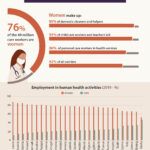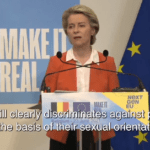Judgment of the Court in Case C-356/21
The Directive on equal treatment in employment and occupation, which covers a wide range of occupational activities, establishes a general framework for combatting discrimination based, inter alia, on sexual orientation.
Between 2010 and 2017, a self-employed worker prepared audiovisual material, trailers and features for the promotional programmes of TP, a company that operates a nationwide public television channel in Poland. That collaboration was based on a series of contracts for specific work which that worker concluded with TP in the context of his independent economic activity.
In December 2017, that self-employed worker and his partner published a Christmas music video on YouTube aimed at promoting tolerance towards same-sex couples. Shortly after the publication of that video, that worker’s shifts were unilaterally cancelled by TP and, subsequently, no new contract for specific work was concluded with
him.
Considering himself to be a victim of direct discrimination based on his sexual orientation, that worker brought an action for compensation before the District Court of Warsaw (Poland). That court questions, first, whether the situation at issue in the main proceedings falls within the scope of Directive 2000/78/EC on equal treatment in employment and occupation.
Secondly, the national court wishes to know whether that directive precludes national legislation which excludes, on the basis of the freedom of choice of contracting parties, from the protection against discrimination to be conferred by that directive, the refusal, based on the sexual orientation of a person, to conclude or renew a contract with a self-employed worker.
By its judgment delivered, the Court holds that the concept of ‘conditions for access to employment, to selfemployment or to occupation’, which restricts the occupational activities falling within the scope of Directive 2000/78, must be construed broadly, covering the access to any occupational activity, whatever the nature and characteristics of such activity. That interpretation not only follows from the text of Directive 2000/78, but is also confirmed by its objectives. In that respect, the Court notes that Directive 2000/78 seeks to eliminate, on grounds relating to social and public interest, all discriminatory obstacles to access to livelihoods and to the capacity to contribute to society through work, irrespective of the legal form in which it is provided. Nevertheless, since activities consisting of the mere provision of goods or services to one or more recipients do not fall within the scope of that directive, the Court specifies that occupational activities falling within the scope of Directive 2000/78, must be genuine and be pursued in the context of a legal relationship characterised by a degree of stability. It is for the referring court to assess whether the activity at issue satisfies that criterion.

Commission refers HUNGARY to the Court of Justice of the EU over violation of LGBTIQ rights
|
Similarly, the Court finds that the concept of ‘employment and working conditions, including dismissals and pay’, within the meaning of Directive 2000/78, must also be construed in a broad sense, as covering the conditions applicable to any form of employment or self-employment, whatever the legal form in which it is pursued. In addition, as regards the concept of ‘dismissal’, the Court notes that a person who has been self-employed may also find himself or herself obliged to stop working due to his or her contractual counterparty and thus be in a vulnerable position comparable to that of an employed worker who has been dismissed. The Court concludes, subject to the assessment to be carried out by the referring court, that the decision not to renew the contract on the ground of the sexual orientation of the contractor falls within the scope of Directive 2000/78.
In the event that the referring court were to find that there was discrimination, the Court considers that it cannot be justified on one of the grounds referred to in Article 2(5) of Directive 2000/78 establishing an exception to the principle of the prohibition of discrimination. In that regard, the Court observes that while the Polish legislation appears to protect the rights and freedoms of others, more specifically freedom of contract, it is not necessary for the purposes of safeguarding that freedom.
According to the Court, the fact that the Polish legislature provided for a number of exceptions to the freedom to choose a contracting party shows that it itself considered that discrimination could not be regarded as necessary for the purposes of safeguarding freedom of contract in a democratic society. Lastly, the Court notes that to accept that freedom of contract allows a refusal to contract with a person on the ground of that person’s sexual orientation would deprive Directive 2000/78, and the prohibition of any discrimination based on that ground, of its practical effect.
PRESS RELEASE No 6/23
Luxembourg, 12 January 2023
Source: Press release – CURIA







Leave a Reply